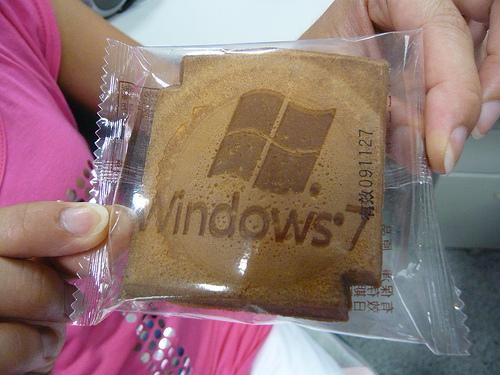Redmond-based software giant Microsoft has been ordered by Judge Leonard Davis, of the U.S. District Court for the Eastern District of Texas, to halt all sales of Microsoft Word in the US of A. This means the Word version in Office 2003, Office 2007 and presumably the upcoming Office 2010, currently available only to a select bunch of testers as a Tech Preview - the judge only mentioned Office 2003 and 2007. The injunction the judge imposed on Microsoft is permanent and stems from the fact that the Redmond-based software giant lost a patent infringement lawsuit filed by Toronto-based i4i Inc. The Canadian company states that Microsoft violated patent 5787449 which refers to a method of reading XML.
The judge’s order states that Microsoft is prohibited from selling or importing to the US any MS Word products that are capable of opening .XML, .DOCX or DOCM files (XML files) containing custom XML. i4i founder Michel Vulpe said he finds the judge’s decision a fair one: “We are very pleased with the verdict. The jury heard extensive testimony and evidence and concluded that Microsoft had indeed infringed our patent. “We feel vindicated with this result.”
Microsoft has also lost a lot of coin – the judge ordered the Redmond-based company to pay i4i about $300 million in damages. Perhaps Microsoft should consider switching to other profit making endeavors to get all this coin back, like the food industry.
Microsoftie Long Zheng has uncovered a Windows 7-branded cookie currently sold only in China. “One can only assume it will be packed with every pirated of copy of Windows 7 to satisfy your hunger during installation of the operating system. In Europe, the cookie will only be sold unbaked. To promote competition, the European Commission advises purchasers to choose from a range of ovens in which they may bake their cookie,” joked Zheng in reference to the fact that Chinese hackers cracked Windows 7 and the fact that the European Commission is mulling over the idea of presenting Windows 7 users in Europe with a browser ballot box.
Microsoft representatives stated that the company does not believe it infringed the patent and that it considers the verdict unfair. Consequently Microsoft plans to appeal the court’s decision.
RealNetworks, the company behind the RealPlayer software application, isn’t having a better time in court either. Just like Microsoft, it is also banned from selling one of its products. Judge Marilyn Hall Patel of the U.S. District Court for the Northern District of California issued an injunction preventing the company from selling RealDVD, a software application that you could use to rip DVDs. The curt found that the software violated the DCMA (Digital Millennium Copyright Act) and ruled against RealNetworks.
Senior Staff Attorney with the EFF (Electronic Frontier Foundation), Fred von Lohmann, explains why this is bad for RealNetworks and the end user: “Real will likely appeal this ruling. Unfortunately, given the pace of the federal appeals process, this means that the RealDVD products will likely stay off the market for at least a year. And whatever the outcome of that appeal, this ruling sends a chilling message to any technology innovator interested in delivering new products that interact with the DVDs you own. At the same time, Judge Patel's ruling is not likely to make any dent in the widespread availability of free, easy to use, unauthorized DVD rippers like Handbrake, Mac the Ripper, and DVD Shrink.”
The judge’s order states that Microsoft is prohibited from selling or importing to the US any MS Word products that are capable of opening .XML, .DOCX or DOCM files (XML files) containing custom XML. i4i founder Michel Vulpe said he finds the judge’s decision a fair one: “We are very pleased with the verdict. The jury heard extensive testimony and evidence and concluded that Microsoft had indeed infringed our patent. “We feel vindicated with this result.”
Microsoft has also lost a lot of coin – the judge ordered the Redmond-based company to pay i4i about $300 million in damages. Perhaps Microsoft should consider switching to other profit making endeavors to get all this coin back, like the food industry.
Microsoftie Long Zheng has uncovered a Windows 7-branded cookie currently sold only in China. “One can only assume it will be packed with every pirated of copy of Windows 7 to satisfy your hunger during installation of the operating system. In Europe, the cookie will only be sold unbaked. To promote competition, the European Commission advises purchasers to choose from a range of ovens in which they may bake their cookie,” joked Zheng in reference to the fact that Chinese hackers cracked Windows 7 and the fact that the European Commission is mulling over the idea of presenting Windows 7 users in Europe with a browser ballot box.

Microsoft representatives stated that the company does not believe it infringed the patent and that it considers the verdict unfair. Consequently Microsoft plans to appeal the court’s decision.
RealNetworks, the company behind the RealPlayer software application, isn’t having a better time in court either. Just like Microsoft, it is also banned from selling one of its products. Judge Marilyn Hall Patel of the U.S. District Court for the Northern District of California issued an injunction preventing the company from selling RealDVD, a software application that you could use to rip DVDs. The curt found that the software violated the DCMA (Digital Millennium Copyright Act) and ruled against RealNetworks.
Senior Staff Attorney with the EFF (Electronic Frontier Foundation), Fred von Lohmann, explains why this is bad for RealNetworks and the end user: “Real will likely appeal this ruling. Unfortunately, given the pace of the federal appeals process, this means that the RealDVD products will likely stay off the market for at least a year. And whatever the outcome of that appeal, this ruling sends a chilling message to any technology innovator interested in delivering new products that interact with the DVDs you own. At the same time, Judge Patel's ruling is not likely to make any dent in the widespread availability of free, easy to use, unauthorized DVD rippers like Handbrake, Mac the Ripper, and DVD Shrink.”

























